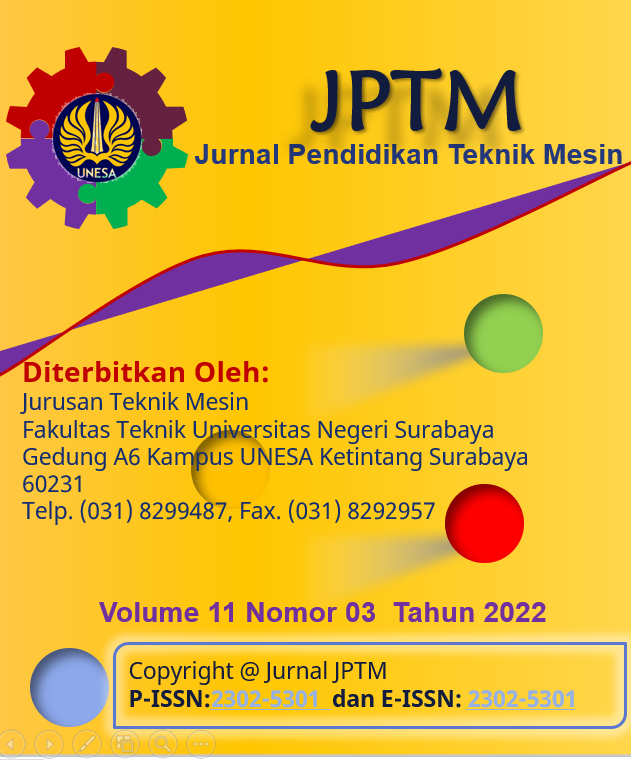KAJIAN TEACHING FACTORY PADA KOMPETENSI KEAHLIAN TEKNIK KENDARAAN RINGAN DI SMK NEGERI 1 KASIMAN MENGGUNAKAN ANALISIS SWOT
Keywords:
Penerapan, Teaching factory, Teknik kendaraan ringanAbstract
Through Presidential Instruction No. 9 of 2016 shows an improvement in the implementation of education held globally. Therefore, the teaching factory (Tefa) program was implemented in SMK. This study aims to analyze the condition and potential of Tefa in terms of seven aspects guided by DPSMK on the competence of Light Vehicle Engineering at SMKN 1 Kasiman Kabupaten Bojonegoro. This study used the descriptive qualitative method. Because this research produces descriptive data in the form of written and spoken words. The method used in this study is to describe the information obtained according to the variables studied. In this study, a qualitative approach was used with the subject of the research being the competence of light vehicle engineering skills at SMKN 1 Kasiman. The results of the study show that the supporting factors include strengths and opportunities where the strength factors. Structure of the practicum schedule arrangement using the block system, having competent teachers and having creative innovation power in the automotive field, and opportunities Industry provides opportunities for teachers to attend training in the industry. Offer cooperation with industry to complete facilities in accordance with technological developments in the industry. While the inhibiting factors are weaknesses and threats where the weakness factor has not implemented the integration of production-based learning models, not all teachers have work experience in the industry, and threat factors need to be updated on technology and supporting equipment and many other schools are applying for assistance To DPSMK.
Keywords: Application, factory teaching, light vehicle engineering
Downloads
Downloads
Published
Issue
Section
 Abstract views: 275
,
Abstract views: 275
, PDF Downloads: 581
PDF Downloads: 581





